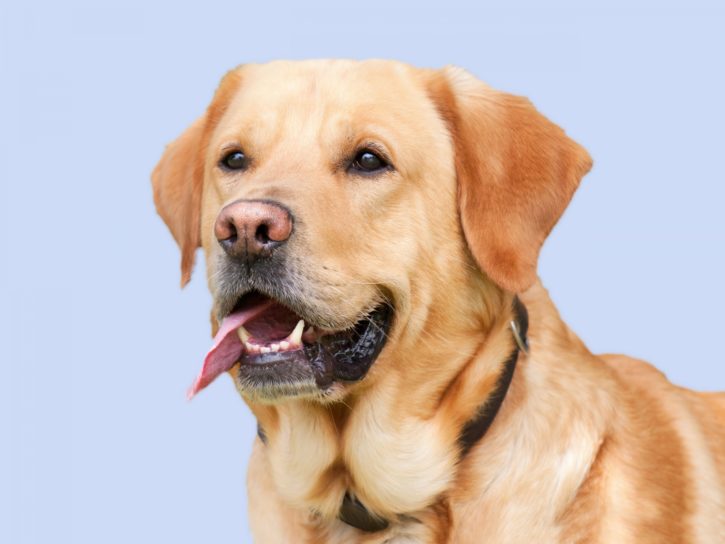
You Can’t Handle the Tooth
So, what is the big deal about dental disease? Studies show that about 80% of dogs and 70% of cats have some sort of dental disease. But what does “dental disease” mean? Keep reading for some of the terms you may have heard your veterinarian use.
Plaque
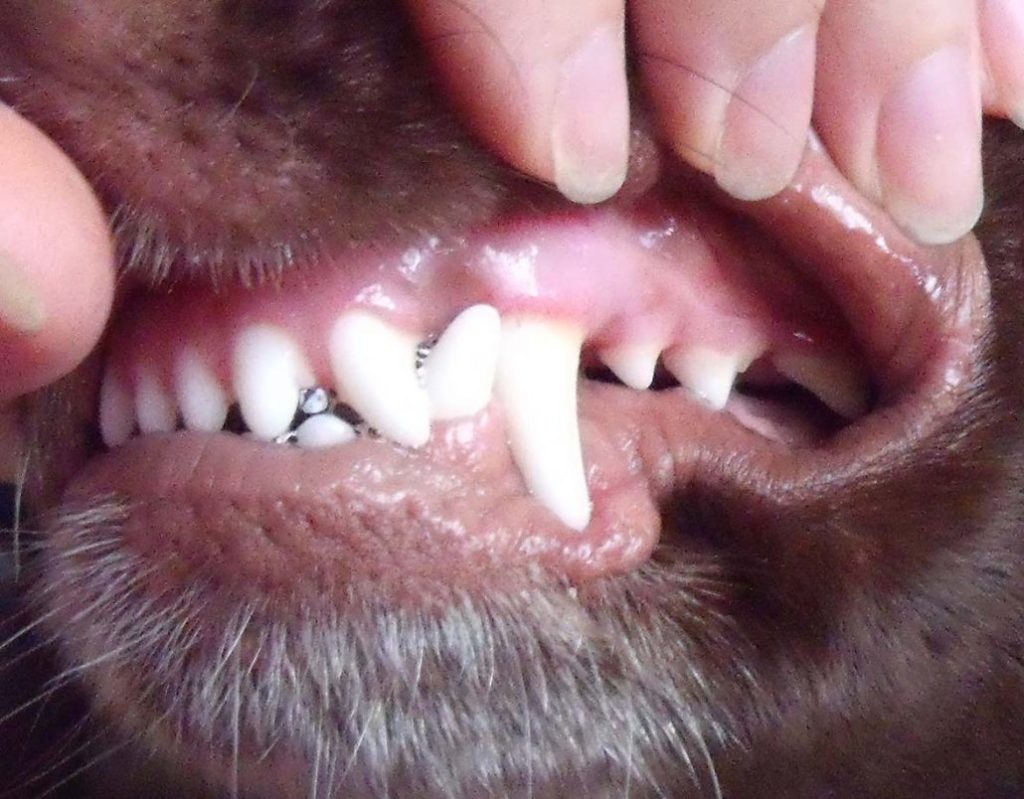
This is a bacterial film that forms on teeth when the bacteria that normally live in your pet’s mouth mixes with food and saliva. If plaque is left on the teeth it hardens to become tartar. Plaque is nearly invisible to the naked eye. Even though these teeth look pretty white, there is likely some plaque buildup on them already.
Tartar
This is the hardened plaque that builds up on the surface of teeth. You may have noticed tartar on your cat or dogs’ teeth.
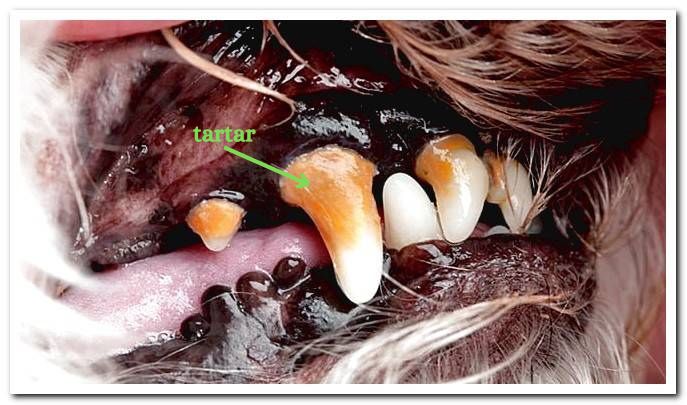
Gingivitis
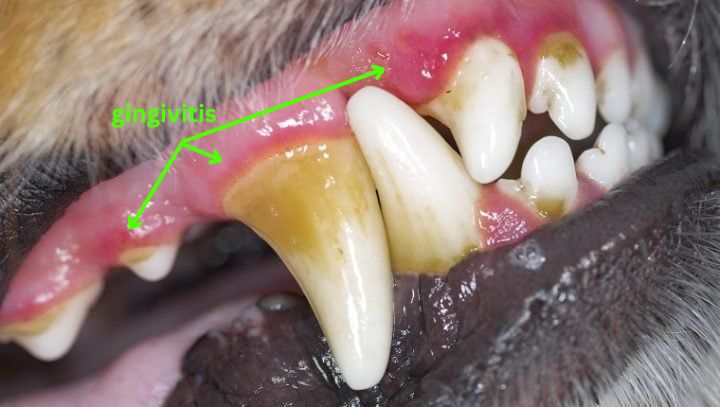
This is inflammation of the gums. The gums get bright red and may even bleed.
Periodontal Disease
Overtime, as plaque and tartar accumulate, it can cause inflammation and infection of the teeth below the gumline. This infection is periodontal disease, and it can have serious consequences like pain, swelling, abscesses, and tooth loss. Severe periodontal disease can even affect other organs (like the heart or kidneys) if the bacteria get into the bloodstream.
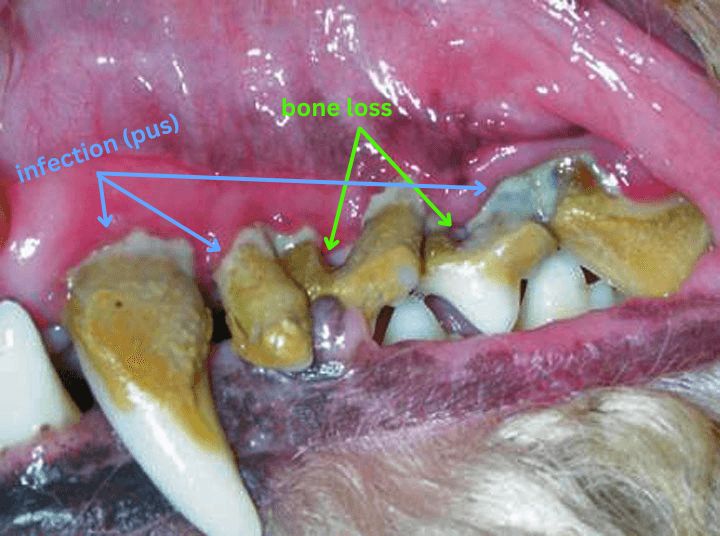
Staging Teeth
At every visit, your veterinarian will perform an oral examination. This includes examining the teeth for signs of tartar, the gums for signs of gingivitis, and any fractured teeth. After this exam, your veterinarian will stage your pet’s teeth. Staging runs on a scale from 0 (no evidence of dental disease) to 4 (severe dental disease). See the scale below for a general outline of staging.
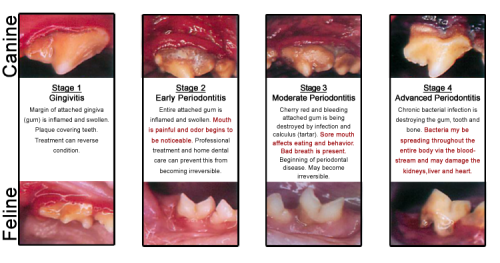
Unfortunately, a good majority of periodontal disease occurs below the gumline, so we cannot see it during a typical exam. That is where a COHAT comes in!
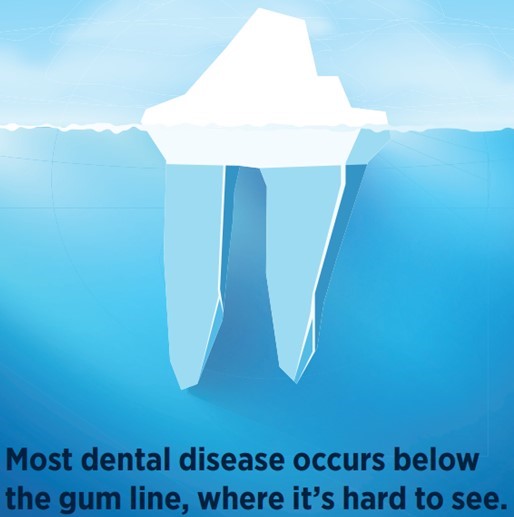
COHAT stands for Comprehensive Oral Health Assessment and Treatment. This is most often referred to as “dental cleaning”. A COHAT allows your veterinarian to get a better appreciation for the severity of your pet’s dental disease, and it gives them the opportunity to treat any disease present. Stay tuned for the next article that goes into more detail about COHATs!
Now It’s Your Turn!
Test your new knowledge with this brief quiz to be entered into a drawing for a $10 credit towards any service at Ottawa Animal Hospital.
Click on this link: https://www.surveymonkey.com/r/28PCZVX.
